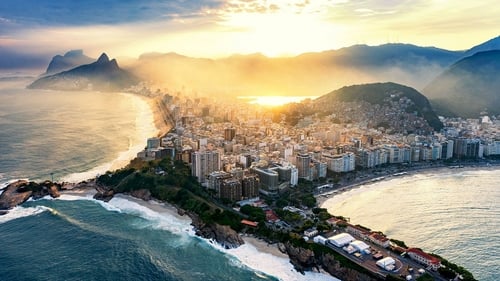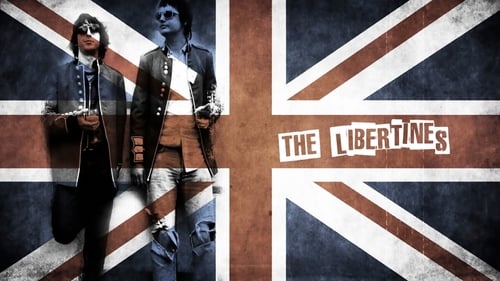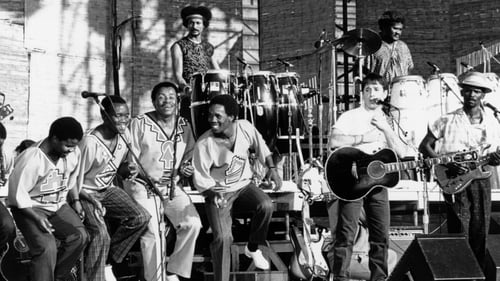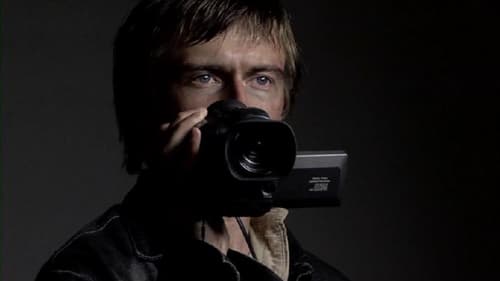
Following Sean (2006)
The more things change, the more we're not the same
Género : Documental
Tiempo de ejecución : 1H 27M
Director : Ralph Arlyck
Sinopsis
Filmmaker Ralph Arlyck first met Sean while living as a graduate student in Haight Ashbury at the height of the 1960s. The city was awash with the trappings of America’s cultural revolution-the San Francisco State University campus flooded with cops in riot gear, the Haight filled with drifters and idealists, and, on the third floor of Arlyck’s building, a come-one-come-all crashpad apartment. It was from this top floor commune that the precocious 4-year-old Sean would occasionally wander downstairs to visit and talk-and one day Arlyck turned on his camera. Sean’s casual commentary on everything from smoking pot to living with speed freaks was delivered in simple sincerity throughout the soon-to-be famous 15-minute film. This First Child of the notorious decade may have shaken the audience with his simple sentence- “Sure, I smoke pot”-but it was his barefoot impishness which would encapsulate the hope that lay in front of the nation: a promise of infinite possibility.

A los 32 años Joaquín sigue viviendo en la casa de su padre, encerrado en su habitación. Nadie puede ayudarlo a superar la depresión. Ni siquiera Balbis, su psicoanalista, que recomienda su internación en una clínica. Mara, actriz de comedia musical, vuelve a Buenos Aires, después de vivir en el exterior durante un tiempo. Pero ya nada es como cuando se fue. Su casa, su madre, sus recuerdos. Sin embargo, cuando Mara y Joaquín se reencuentren sus vidas darán un vuelco inesperado.

After a tragic accident caused by the truck of the middle-aged Carl Lee where a woman dies with a crushed stern, he is arrested and sent to the county jail. His son PJ, who works washing dishes and cleaning tables in a restaurant, feels lost, without financial support to keep his father's house, and is fired from his job and evicted from his house.

Documentary about women's experiences of labour, in factories, mines and dockyards, in the USA during the second World War and how it affected their work and career aspirations once they were encouraged to give up such employment in peacetime.

Through the heart and photographic lens of international photographer Jo-Anne McArthur,
we become intimately familiar with a cast of non-human animals. The film follows Jo-Anne over the course of a year as she photographs several animal stories in parts of Canada,
the U.S. and in Europe. Each story is a window into global animal industries:
Food, Fashion, Entertainment and Research.

When Arthur, self-proclaimed son of God, sets off on a mission to find the Queen of Heaven, his world changes.

As troubling signs of global cataclysms accelerate, a brother and sister react to their father's desertion and the powerful presence of their mother's new boyfriend.

Rio de Janeiro es una ciudad en expansion. De sus casi 12 millones de habitantes, se calcula que el 20% de la poblacion vive en las mas de 600 favelas o barrios de chabolas. La mayoria de ellas estan controladas por narcotraficantes o paramilitares armados hasta los dientes que nunca antes habian sido filmados sin disfraces o caretas

A forest ranger is haunted by the disappearance of his four-year-old daughter, and the subsequent breakup of his marriage. He discovers his ex-wife Ana is pregnant to the policeman in charge of his missing daughter's case.

Samuel works in Brussels as a pharmaceutical delivery man. His gorgeous girlfriend Mireille heads off to New York to intern at a prestigious architecture firm. Shortly after her departure, Sam's computer is hacked. A series of rather dodgy IT-guys fail to protect his wireless network. The mysterious hacker seems intent on screwing up Samuel's life and his relationship with Mireille. Paranoia kicks in. Sam starts to suspect his neighbors and gets obsessed with WiFi-rays... Love, paranoia and two lovers separated by an ocean of communication devices.

A bold and unflinching documentary on 'white flight' in the area of Spanish Lake, Missouri, a post WW2 suburb. The town experiences rapid economic decline and population turnover due to racism and governmental policies which support the white exodus. The themes of the film parallel America's growing political divide, racial tension, and rise of anti-government sentiment.

An access-all-areas documentary about The Libertines reunion shows at Reading & Leeds Festivals 2010 from first time director Roger Sargent; photographer, witness and confidante of the band throughout their short and turmoil filled career. Featuring the present day story of the build up, rehearsals, warm-ups and concerts set against the painfully honest interviews with each band member recounting the band's history and illustrated by Sargent's unparalleled archive of classic Libertines photographs. An intense and intimate portrayal of arguably Britain's most exciting and influential band of the last decade.

A man coming off a disastrous affair with a married woman has a lyrical, strange and comedic cross-country journey in a modified VW bus.

“The Forgotten Faces (1961), a film reconstruction of the Hungarian revolution of 1956, won Watkins another amateur Oscar, and to this day, the film is praised in England as "one of the most memorable amateur films ever made".

BHUTTO is the definitive documentary that chronicles the life of one of the most complex and fascinating characters of our time. Hers is an epic tale of Shakespearean dimension. It’s the story of the first woman in history to lead a Muslim nation: Pakistan. Newsweek called it the most dangerous place in the world, and the home of nuclear war heads and the Taliban.

Face to Face is adapted from David Williamson's play of the same name which is in turn based on the transcripts from real conflict resolution sessions. The story is about a young scaffold construction worker who is charged with assaulting his boss. By the end of the film, all our assumptions about guilt and blame are turned on their heads. As 10 people sit in a room discussing the turn of events that brought our protagonist to breaking point, twists and surprises reveal that all is not quite as simple as it seems. Michael Rymer directs his screen adaptation of 'Face to Face' (written by Australian playwright David Williamson), as an ensemble piece about 10 very dissimilar Australians bound together by a complex pattern of relationships and shared histories. Hysterically funny and deeply moving, each character's role in the drama peels back another layer as the story digs down to the roots of who these people really are.

Paul Simon vuelve a Sudáfrica para explorar el increíble viaje de su histórico albun "la gracia de la tierra", incluyendo la reacción política que recibió por romper presuntamente el boicot cultural de las Naciones Unidas de Sudáfrica diseñado para acabar con el régimen del Apartheid.

The inside story of the November 2008 terrorist attack on Mumbai, India - in the words of the victims and of the terrorists themselves. Includes never-before-heard telephone intercepts of the terrorists' conversations with their handlers in Pakistan, CCTV footage from the luxury hotels as they are attacked and the tape of the first interrogation of the sole surviving terrorist Kasab.

In 1968, Elsa and Richard Marley founded an alternative-living community, named Black Bear, in the remote Northern California wilderness with the motto "Free Land for Free People." This film tells the story of that intended utopia. Through archival footage and interviews with former residents, director Jonathan Berman explores the problems and realities of communal living and the evolution of a community that endured FBI harassment, cult leadership and more.

Based on Kelly McMasters’s memoir about growing up in a nuclear-reactor community, this stirring film illustrates the dire health consequences for many residents in Shirley, her Long Island hometown. Yet despite the known risks of utilizing nuclear power, our country’s rapidly increasing energy needs are fueling a nuclear renaissance.

Following a traumatic experience, Gaile, a speech therapist, is incapable of feeling any emotion. However, while preparing a video presentation for a scientific conference, she sees herself on screen and is surprised to find suppressed sensations returning to her, primarily feelings of aggression. Gaile decides to try an experiment. With the help of a man and his video camera she stages various provoking situations and shows the result to those involved. Throughout the experience she is unable to perceive the value of normal emotions, or even the possibility that someone may have feelings for her








